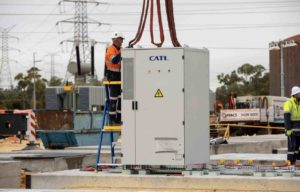US-based sustainability non-profit the Rocky Mountain Institute has assembled group of global big hitters into new peak body representing the virtual power plant sector, that will advocate for scaling the “explosive” new energy market.
The group, known as VP3, counts among its founding members auto giants Ford and General Motors, home energy management giant Google Nest, and Australian DER solutions company SwitchDin.
As RMI describes it, virtual power plants (VPPs) harness the “latent potential” of thousands of behind-the-meter assets of households and businesses – including air conditioners, electric vehicles, batteries, and rooftop solar systems.
These resources can be flexibly charged, discharged, or managed to meet help meet the needs of increasingly flexible and renewables-powered electricity grids.
When intelligently aggregated and coordinated, these VPPs can provide many of the same energy services (capacity, energy, ancillary services) as a traditional power plant – bringing consumers into the energy ecosystem in a way that rewards their investment in efficient and clean energy.
“Virtual power plants are poised for explosive growth, and RMI is committed to being at the forefront of their success by launching VP3,” said RMI CEO Jon Creyts.
“Our analysis shows that VPPs can reduce peak power demand and improve grid resilience in a world of increasingly extreme climate events.
“A growing VPP market also means revenue opportunities for hardware, software, and energy-service companies in the buildings and automotive industries. For large energy users, VPPs can significantly reduce energy spend while providing new revenue streams.”
RMI’s managing director for carbon-free electricity, Mark Dyson, says the next 12 to 24 months are critical for policy and program development to seize the potential offered by VPPs. Hence the establishment of VP3.
“Policy change, customer and stakeholder education, and unilateral action by individual businesses or organizations all take time and resources,” Dyson says.
“We’re excited to partner in this work with leading businesses in VPP-related sectors including electric vehicles, building controls, residential energy technologies, utility-facing software solutions, and more.”
For SwitchDin, membership of VP3 adds a feather to the cap of the Australia company, while also tapping its experience on the leading edge of grids with high proportions of renewables – and particularly of rooftop solar – in states like South Australia.
“SwitchDin’s Stormcloud platform provides the operational tools to ensure distribution networks, market participants and EV fleet managers can provide new clean and resilient consumer services,” says SwitchDin CEO Andrew Mears.
“We are looking forward to sharing lessons from Australia and delivering our Stormcloud to US customers to help in this global challenge.”










